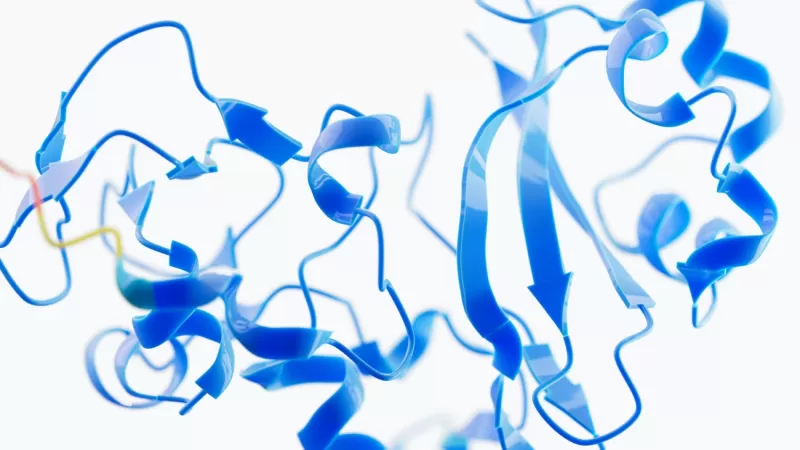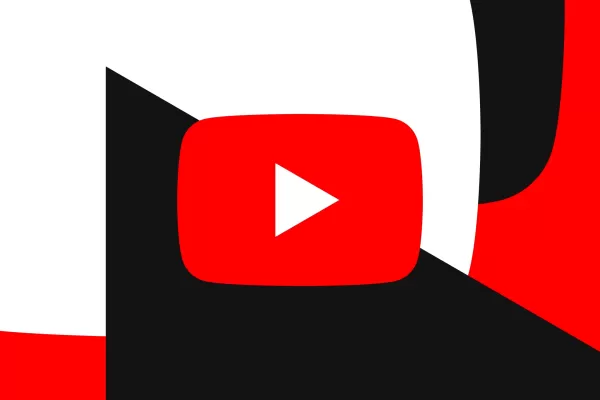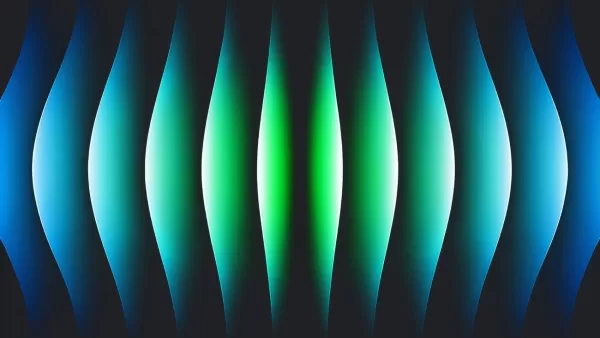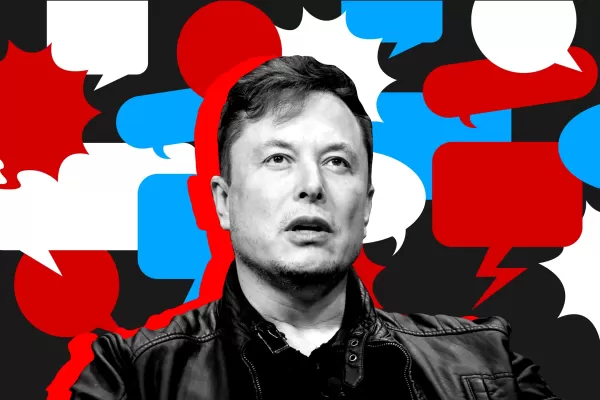Google DeepMind's Hassabis, Jumper Win Chemistry Nobel

This post originally appeared on the Google DeepMind Blog.
This morning, Sir Demis Hassabis, Co-founder and CEO of Google DeepMind and Isomorphic Labs, along with Google DeepMind Director Dr. John Jumper, were awarded the 2024 Nobel Prize in Chemistry. They received this prestigious award for their groundbreaking work on AlphaFold, an AI system that predicts the 3D structure of proteins from their amino acid sequences. David Baker was also recognized for his contributions to computational protein design.
Before AlphaFold came along, figuring out a protein's structure was a real headache—it took ages and was super complicated.
Thanks to AlphaFold, over 2 million scientists and researchers from 190 countries now have access to a powerful tool through the AlphaFold Protein Structure Database. The 2021 paper on AlphaFold 2 has become one of the most-cited publications ever.
AlphaFold's impact on science has been huge, earning it accolades like the 2023 Albert Lasker Basic Medical Research Award, the 2023 Breakthrough Prize in Life Sciences, the 2023 Canada Gairdner International Award, the 2024 Clarivate Citation Laureate award, and the 2024 Keio Medical Science Prize Award.
AI has always had the potential to revolutionize scientific research, and AlphaFold really showed us what's possible. As more scientists start using AI for everything from gathering data to simulating experiments, designing drugs, modeling complex systems, finding new solutions to old problems, and building on what we already know, we're going to see some amazing breakthroughs in the future.
Sir Demis Hassabis, Co-founder and CEO of Google DeepMind and Isomorphic Labs, and Dr. John Jumper, Google DeepMind Director
After being informed of the news, Demis Hassabis shared his thoughts:
"Receiving the Nobel Prize is the honor of a lifetime. I want to thank the Royal Swedish Academy of Sciences, John Jumper and the AlphaFold team, the wider DeepMind and Google teams, and all my colleagues past and present who made this possible. I've dedicated my career to advancing AI because of its incredible potential to improve billions of lives. AlphaFold has already helped over two million researchers with critical work, from enzyme design to drug discovery. I hope we'll remember AlphaFold as the first proof that AI can really speed up scientific discovery."
Upon hearing he won the Nobel Prize, John Jumper released the following statement:
"I want to thank the Royal Swedish Academy of Sciences for this incredible honor. We are thrilled to be recognized for our work in computational biology, which helps us understand proteins and supports the amazing work of experimental biologists. This is a clear demonstration that AI can accelerate science and ultimately help us understand diseases and develop new treatments. This award is a testament to the exceptional team at Google DeepMind and their fantastic work.
Computational biology has always promised to deliver practical insights for real-world experiments, and AlphaFold has made good on that promise. We're on the cusp of a new era of scientific discoveries powered by AI. Thanks to my colleagues over the years for making this recognition possible, as well as for all the discoveries that are yet to come."
Related article
 YouTube Integrates Veo 3 AI Video Tool Directly Into Shorts Platform
YouTube Shorts to Feature Veo 3 AI Video Model This SummerYouTube CEO Neal Mohan revealed during his Cannes Lions keynote that the platform's cutting-edge Veo 3 AI video generation technology will debut on YouTube Shorts later this summer. This follo
YouTube Integrates Veo 3 AI Video Tool Directly Into Shorts Platform
YouTube Shorts to Feature Veo 3 AI Video Model This SummerYouTube CEO Neal Mohan revealed during his Cannes Lions keynote that the platform's cutting-edge Veo 3 AI video generation technology will debut on YouTube Shorts later this summer. This follo
 Google Cloud Powers Breakthroughs in Scientific Research and Discovery
The digital revolution is transforming scientific methodologies through unprecedented computational capabilities. Cutting-edge technologies now augment both theoretical frameworks and laboratory experiments, propelling breakthroughs across discipline
Google Cloud Powers Breakthroughs in Scientific Research and Discovery
The digital revolution is transforming scientific methodologies through unprecedented computational capabilities. Cutting-edge technologies now augment both theoretical frameworks and laboratory experiments, propelling breakthroughs across discipline
 Elon Musk's Grok AI Seeks Owner's Input Before Tackling Complex Queries
The recently released Grok AI—promoted by Elon Musk as a "maximally truth-seeking" system—has drawn attention for its tendency to consult Musk's public statements before responding to politically sensitive topics. Observers note that when addressing
Comments (37)
0/200
Elon Musk's Grok AI Seeks Owner's Input Before Tackling Complex Queries
The recently released Grok AI—promoted by Elon Musk as a "maximally truth-seeking" system—has drawn attention for its tendency to consult Musk's public statements before responding to politically sensitive topics. Observers note that when addressing
Comments (37)
0/200
![TerryGonzalez]() TerryGonzalez
TerryGonzalez
 September 20, 2025 at 12:30:33 PM EDT
September 20, 2025 at 12:30:33 PM EDT
DeepMind的两位科学家获诺贝尔化学奖实至名归!😊 AlphaFold确实改变了蛋白质结构预测的游戏规则,为药物研发带来革命性突破。不过他们能击败那么多资深生物化学家获奖,还是有点出人意料呢~


 0
0
![OliviaJones]() OliviaJones
OliviaJones
 August 19, 2025 at 11:01:21 PM EDT
August 19, 2025 at 11:01:21 PM EDT
Wow, Hassabis and Jumper snagging the Nobel for Chemistry is wild! 🧪 AI cracking protein structures? That’s some sci-fi stuff coming to life. Can’t wait to see how this shakes up biotech!


 0
0
![AlbertThomas]() AlbertThomas
AlbertThomas
 April 26, 2025 at 1:09:22 AM EDT
April 26, 2025 at 1:09:22 AM EDT
하사비스와 점퍼가 노벨상을 받다니 대단해요! 그들의 구글 딥마인드 연구는 화학 분야를 혁신하고 있어요. 자랑스럽지만, 연구의 세부 사항은 잘 모르겠어요. 여러분도 같은 생각인가요? 🤓 간단한 설명 비디오가 있으면 좋겠어요!


 0
0
![BenJackson]() BenJackson
BenJackson
 April 22, 2025 at 9:38:43 PM EDT
April 22, 2025 at 9:38:43 PM EDT
Hassabis und Jumper haben den Nobelpreis für Chemie gewonnen? Das ist unglaublich! Ihre Arbeit bei Google DeepMind ist wirklich bahnbrechend. Was wird die Zukunft der KI in der Wissenschaft bringen? Ich bin gespannt! 🧪


 0
0
![TimothyAllen]() TimothyAllen
TimothyAllen
 April 22, 2025 at 11:05:04 AM EDT
April 22, 2025 at 11:05:04 AM EDT
Wow, Hassabis and Jumper getting the Nobel Prize in Chemistry? That's insane! Their work at Google DeepMind is truly groundbreaking. Makes me wonder what's next for AI in science. Can't wait to see more! 🚀


 0
0
![AlbertScott]() AlbertScott
AlbertScott
 April 21, 2025 at 4:42:04 PM EDT
April 21, 2025 at 4:42:04 PM EDT
Wow, Hassabis and Jumper winning the Nobel is huge! Their work at Google DeepMind is changing the game in chemistry. Super proud of them, but I gotta admit, the details of their research kinda fly over my head. Anyone else feel the same? 🤓 Maybe they should do a simple explainer video!


 0
0

This post originally appeared on the Google DeepMind Blog.
This morning, Sir Demis Hassabis, Co-founder and CEO of Google DeepMind and Isomorphic Labs, along with Google DeepMind Director Dr. John Jumper, were awarded the 2024 Nobel Prize in Chemistry. They received this prestigious award for their groundbreaking work on AlphaFold, an AI system that predicts the 3D structure of proteins from their amino acid sequences. David Baker was also recognized for his contributions to computational protein design.
Before AlphaFold came along, figuring out a protein's structure was a real headache—it took ages and was super complicated.
Thanks to AlphaFold, over 2 million scientists and researchers from 190 countries now have access to a powerful tool through the AlphaFold Protein Structure Database. The 2021 paper on AlphaFold 2 has become one of the most-cited publications ever.
AlphaFold's impact on science has been huge, earning it accolades like the 2023 Albert Lasker Basic Medical Research Award, the 2023 Breakthrough Prize in Life Sciences, the 2023 Canada Gairdner International Award, the 2024 Clarivate Citation Laureate award, and the 2024 Keio Medical Science Prize Award.
AI has always had the potential to revolutionize scientific research, and AlphaFold really showed us what's possible. As more scientists start using AI for everything from gathering data to simulating experiments, designing drugs, modeling complex systems, finding new solutions to old problems, and building on what we already know, we're going to see some amazing breakthroughs in the future.
"Receiving the Nobel Prize is the honor of a lifetime. I want to thank the Royal Swedish Academy of Sciences, John Jumper and the AlphaFold team, the wider DeepMind and Google teams, and all my colleagues past and present who made this possible. I've dedicated my career to advancing AI because of its incredible potential to improve billions of lives. AlphaFold has already helped over two million researchers with critical work, from enzyme design to drug discovery. I hope we'll remember AlphaFold as the first proof that AI can really speed up scientific discovery."
Upon hearing he won the Nobel Prize, John Jumper released the following statement:
"I want to thank the Royal Swedish Academy of Sciences for this incredible honor. We are thrilled to be recognized for our work in computational biology, which helps us understand proteins and supports the amazing work of experimental biologists. This is a clear demonstration that AI can accelerate science and ultimately help us understand diseases and develop new treatments. This award is a testament to the exceptional team at Google DeepMind and their fantastic work.
Computational biology has always promised to deliver practical insights for real-world experiments, and AlphaFold has made good on that promise. We're on the cusp of a new era of scientific discoveries powered by AI. Thanks to my colleagues over the years for making this recognition possible, as well as for all the discoveries that are yet to come."
 YouTube Integrates Veo 3 AI Video Tool Directly Into Shorts Platform
YouTube Shorts to Feature Veo 3 AI Video Model This SummerYouTube CEO Neal Mohan revealed during his Cannes Lions keynote that the platform's cutting-edge Veo 3 AI video generation technology will debut on YouTube Shorts later this summer. This follo
YouTube Integrates Veo 3 AI Video Tool Directly Into Shorts Platform
YouTube Shorts to Feature Veo 3 AI Video Model This SummerYouTube CEO Neal Mohan revealed during his Cannes Lions keynote that the platform's cutting-edge Veo 3 AI video generation technology will debut on YouTube Shorts later this summer. This follo
 Google Cloud Powers Breakthroughs in Scientific Research and Discovery
The digital revolution is transforming scientific methodologies through unprecedented computational capabilities. Cutting-edge technologies now augment both theoretical frameworks and laboratory experiments, propelling breakthroughs across discipline
Google Cloud Powers Breakthroughs in Scientific Research and Discovery
The digital revolution is transforming scientific methodologies through unprecedented computational capabilities. Cutting-edge technologies now augment both theoretical frameworks and laboratory experiments, propelling breakthroughs across discipline
 Elon Musk's Grok AI Seeks Owner's Input Before Tackling Complex Queries
The recently released Grok AI—promoted by Elon Musk as a "maximally truth-seeking" system—has drawn attention for its tendency to consult Musk's public statements before responding to politically sensitive topics. Observers note that when addressing
Elon Musk's Grok AI Seeks Owner's Input Before Tackling Complex Queries
The recently released Grok AI—promoted by Elon Musk as a "maximally truth-seeking" system—has drawn attention for its tendency to consult Musk's public statements before responding to politically sensitive topics. Observers note that when addressing
 September 20, 2025 at 12:30:33 PM EDT
September 20, 2025 at 12:30:33 PM EDT
DeepMind的两位科学家获诺贝尔化学奖实至名归!😊 AlphaFold确实改变了蛋白质结构预测的游戏规则,为药物研发带来革命性突破。不过他们能击败那么多资深生物化学家获奖,还是有点出人意料呢~


 0
0
 August 19, 2025 at 11:01:21 PM EDT
August 19, 2025 at 11:01:21 PM EDT
Wow, Hassabis and Jumper snagging the Nobel for Chemistry is wild! 🧪 AI cracking protein structures? That’s some sci-fi stuff coming to life. Can’t wait to see how this shakes up biotech!


 0
0
 April 26, 2025 at 1:09:22 AM EDT
April 26, 2025 at 1:09:22 AM EDT
하사비스와 점퍼가 노벨상을 받다니 대단해요! 그들의 구글 딥마인드 연구는 화학 분야를 혁신하고 있어요. 자랑스럽지만, 연구의 세부 사항은 잘 모르겠어요. 여러분도 같은 생각인가요? 🤓 간단한 설명 비디오가 있으면 좋겠어요!


 0
0
 April 22, 2025 at 9:38:43 PM EDT
April 22, 2025 at 9:38:43 PM EDT
Hassabis und Jumper haben den Nobelpreis für Chemie gewonnen? Das ist unglaublich! Ihre Arbeit bei Google DeepMind ist wirklich bahnbrechend. Was wird die Zukunft der KI in der Wissenschaft bringen? Ich bin gespannt! 🧪


 0
0
 April 22, 2025 at 11:05:04 AM EDT
April 22, 2025 at 11:05:04 AM EDT
Wow, Hassabis and Jumper getting the Nobel Prize in Chemistry? That's insane! Their work at Google DeepMind is truly groundbreaking. Makes me wonder what's next for AI in science. Can't wait to see more! 🚀


 0
0
 April 21, 2025 at 4:42:04 PM EDT
April 21, 2025 at 4:42:04 PM EDT
Wow, Hassabis and Jumper winning the Nobel is huge! Their work at Google DeepMind is changing the game in chemistry. Super proud of them, but I gotta admit, the details of their research kinda fly over my head. Anyone else feel the same? 🤓 Maybe they should do a simple explainer video!


 0
0





























